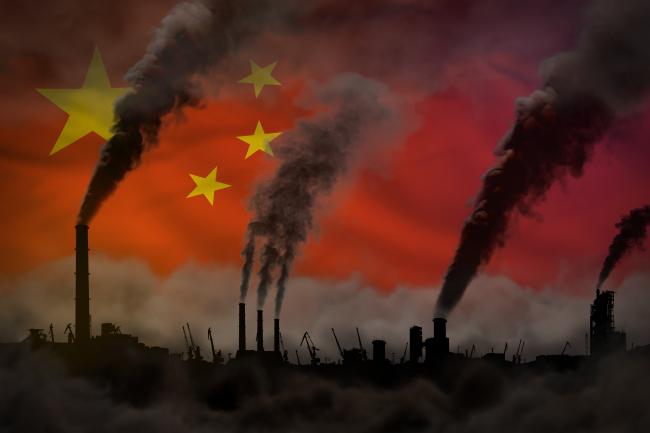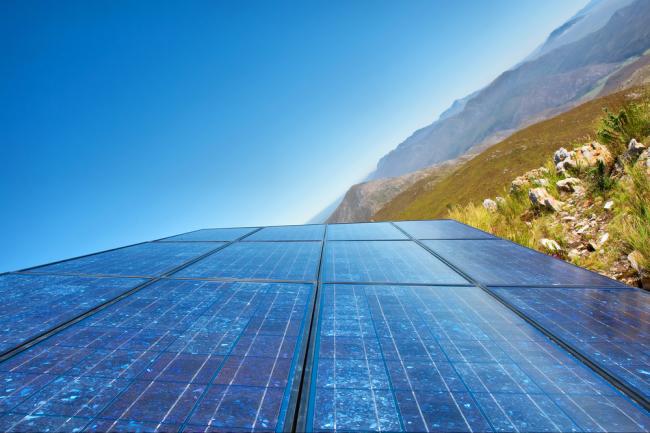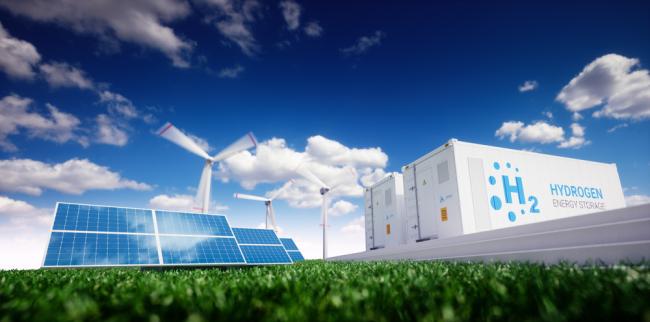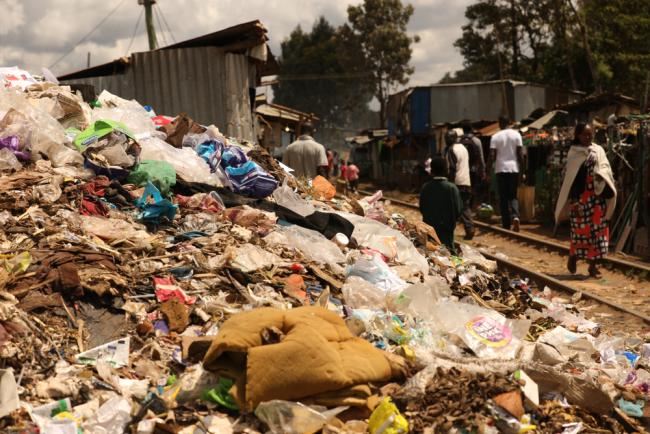Energy - Climate
In the face of the climate emergency and geopolitical confrontations, how can we reconcile security of supply, competitiveness, accessibility, decarbonization and acceptability? What policies are needed?
Related Subjects

Ambitious New Climate Goals Shouldn't Let China off the Hook
Xi Jinping’s announcement of carbon neutrality is impeccably timed, but the hard part lies ahead.
Japan’s Hydrogen Society Ambition: 2020 Status and Perspectives
Japan has been steadfastly promoting the development of its hydrogen economy at all levels: political, diplomatic, economic and industrial. It is yet to be seen if this excitement can be turned into a credible, cost-effective and large scale deployment.
Norway as a Decarbonization Hub for the European Union
The European Union (EU) is committed to reach climate neutrality by 2050. Similarly, Norway aims to create a zero-emission society by that same year.
Shaping the future of the EU: reviving the Europeanisation process
More than ten years after joining the European Union (EU), the Central and Eastern European countries (CEECs) exhibit a puzzle of attitudes and conceptions regarding the EU.
QF scales up mission to expand Qatar’s solar energy vision
Governments across the globe are increasingly focusing on the benefits of sustainable energy and Qatar is no different. As part of its national vision, the country is working to create harmony between environmental protection and economic growth.
Solar Power in Sub-Saharan Africa after COVID-19: Healing the Ills of the Sector
The electrification of sub-Saharan Africa is one of the great challenges of the 21st century. It is essential if we are to succeed in creating the 20 million jobs each year necessary to absorb the demographic growth of the region,[1] which is set to have 2.1 billion inhabitants in 2050, compared to 1.1 billion today.[2]
Russia, the Global Sanitary Crisis and Oil Meltdown: Revisiting Power and the Enemy
In global affairs, the Covid-19 virus makes all countries, powers and individuals equal in one dimension: none is immune to or spared from contamination. In an open and interdependent world, we are all exposed to global sanitary and environmental degradations. Russia is no exception: it has gone into lockdown, with increasing economic and social costs adding up to the fall in oil and gas prices and upcoming impacts of the global recession.
Perspectives on a Hydrogen Strategy for the European Union
There is now a wide understanding that larger use of clean hydrogen in future can be an important mean to achieve decarbonisation of the European economy.
Accelerating the Energy Transition: The Role of Green Finance and its Challenges for Europe
Green finance has been a burgeoning sector since the Paris Agreement and is at the crossroads of financial, socio-economic and environmental challenges. It is hybrid in nature: it uses financial instruments and focuses on environmental issues, while coming under the wider field of so-called “sustainable” finance that assumes a broader approach with the inclusion of socio-economic and governance challenges. It is a catalyst as it facilitates and accelerates the transition to a low-carbon economy. It also includes an increasing range of instruments. From green bonds to green indices, green loans and capital raising activities, the sector is growing both quantitatively and qualitatively. So-called “green” issuance debt alone increased fivefold in nearly three years to reach US $ 257 billion in 2019, emphasizing its on-going innovation and attractiveness.
Green finance embraces the various objectives of public and private actors. It also raises major questions about the future of our societies: choosing to finance only sectors that are already “green” entails significant socio-economic risks, such as job losses in high-emitting (brown) sectors and stranded assets. Adopting a sequenced approach potentially amounts to locking in polluting activities in the long term and not achieving the Paris Climate Agreement’s objectives (lock-in effect).
In view of the physical risks of climate change (devastation and disasters) and those related to energy transition (stranded assets), climate change is now generally considered as a systematic risk. Public and private actors– institutional investors, banks, regulators, central banks, insurers, credit rating agencies, states, multilateral organizations – are taking action both to better understand the risks posed by climate change, and to capitalize on opportunities in this growing field. Green finance provides the financial sector with instruments to effectively reorient capital towards the low-carbon transition. Against a background of uncertainty about the effects of climate change,[1] green finance also reduces the information asymmetry about risks related to major ecosystem disruptions. The structuring and distribution of “green” products are important growth drivers for many stakeholders and in a wide variety of sectors.
However, many risks and challenges remain: financial risks, specifically related to high levels of subsidies for the production and use of fossil fuels, and the lack of a single carbon price; structural risks, which hamper the economic attractiveness of sustainable activities, particularly in terms of profitability; and unclear political signals, notably resulting in regulatory uncertainty. Furthermore, the language of green finance remains fragmented and is still relatively vague: there are many reporting frameworks and taxonomies, preventing easy and uniform ownership by stakeholders. Standardized methodologies, requirements and disclosures are critically needed. A common language is required, not only among Europeans but worldwide, to ensure that financing the ecological transition is genuinely effective.
The quality and comparability of non-financial reporting must be significantly improved to ensure its effectiveness. The principle of double materiality of information – financial and non-financial – is crucial. Green finance provides the entire financial system with instruments to accomplish its transition. It also avoids both a “niche” and a lax approach that are conducive to greenwashing and damaging to the sector growth, and, ultimately, to the transitional objective of green finance. As a source of systemic risk, and in view of the challenges of financing the transition, the aim is to ensure that the concept of sustainable finance remains purposeful by integrating environmental, social and governance (ESG) “filters” into the overall operation of capital markets.
There are many risks of intentional or unintentional greenwashing for market actors: making wrong investment choices, because they are ill-informed about the real nature of sustainability; seeing their reputation discredited in their clients and fund managers’ eyes; undermining trust and the fundamentals of green finance.
The European Union (EU) has taken the lead on these issues. The European Commission’s (EC) Action Plan on Financing Sustainable Growth of March 2018 aims to reorient capital flows towards a more sustainable economy, integrate sustainability into financial institutions’ risk management and promote transparency and long-term awareness within financial institutions. This Action Plan includes numerous instruments, such as an Ecolabel for financial products, the development of a European standard for green bonds, a so-called “Disclosure” regulation legislating on non-financial reporting by market actors, and the clarification of banking and investment advisors’ duties in terms of integrating ESG factors and incorporating sustainability into prudential requirements for banks and insurers. One of the main instruments is the European “taxonomy” for sustainable economic activities, which is intended to establish a common language for greening the financial sector by covering a wide range of actors and activities, at least on a voluntary basis. This future taxonomy has major global potential that could boost the EU’s normative power. Consequently, these challenges are now the focus of the G20 and its Financial Stability Board (FSB), and that of the United Nations.
The EU’s sustainable finance strategy is over the long term, striving to take as comprehensive a view as possible of financial regulation and climate change, and therefore fully redirect capital flows towards financing the transition. The next few months will be critical for the future of the sector, with work continuing on the European taxonomy, the preparation of delegated acts subsequent to the final recommendations prepared by the EU’s Technical Expert Group on Sustainable Finance (TEG), and the implementation of the European Green Deal.
[1]. “Scientific Uncertainty”, Nature Climate Change, Vol. 9, No. 797, October 29, 2019, available at: www.nature.com; M. L. Weitzman, “Fat-Tailed Uncertainty in the Economics of Catastrophic Climate Change”, Review of Environmental Economics and Policy, Vol. 5, No. 2, 2011, pp. 275-292, available at: https://doi.org.
Contribution to the Task Force Sustainable Energy, Water and Food Systems of T20 Saudi Arabia
Waste-to-energy plants appear as an effective means of dealing with two problems of electricity access and waste management at once.
Libya: Old or New Picture? Risks of political uncertainty for the gas and oil business
Libya has an opportunity to get back on track. The end of embargoes and sanctions after the conclusion of the “February Revolution” is favoring a fast production growth.
The U.S. Oil and Gas Boom
A funny thing happened in the last few years when no one was paying attention. J.R. Ewing, the legendary Texas oilman, and his wife Sue Ellen sold Southfork, their ranch near Dallas, and moved to a new home in Pennsylvania (Northfork?). JR immediately began buying subsurface mineral rights for acres of land above the Marcellus and Utica shale formations in the Appalachian Basin.
Gas Exports in Turkmenistan
The Caspian region has been at the center of attention since Europe began seeking alternative routes to natural-gas resources. Turkmenistan has the potential to become an important gas exporter to Europe.
Russian Gas: Reminder of Yesterday Presaging Tomorrow?
One can’t help but be struck by the irony earlier this week of Russian President (ad-interim) Medvedev celebrating the landing of gas in Lubmin Germany from the Nordstream gas pipeline from Russia while Former President and President-in-waiting Putin welcomes Chinese Premier Wen Jiabao to seek a deal to send Russian gas east to Chinese markets.
Gazprom and the EU: Raiding the Gas Companies
It was a matter of time before the Commission competition authorities looked into the business arrangements between Gazprom and its European partners. Some would ask why it took so long.
Commission Communication of the EU Energy External Policy: Was There an Alternative?
EU is the world’s largest net energy importer and consumer, so why do its Members continue to negotiate individually with the rest of the world rather than as one big market with a big voice?
Trans Caspian Gas: A Worthy Teething Ring for Europe's Energy Diplomats
As an early task in its efforts to build a common external energy policy, the Commission has announced it will turn its attention to bringing the vast gas resources of Turkmenistan to European consumers. This will be an excellent place for the Commission to test its ability to speak with one voice for its polyglot constituency. First, their task may be facilitated by the fact that on this topic, no European voices are yet particularly audible.
Energy Efficiency versus the EU ETS: Counterproductive Tribalism in the Commission
On 22 June 2011, a proposal for increased Energy Efficiency was presented by the European Commission. The energy efficiency directive was intensely negotiated and faced strong internal opposition from a number of players. DG Climate officials have shared their concerns with the public.
IEA Crisis Management: Evolving with the Risks
Last week the IEA chose not to renew its June strategic stock release. It was the right decision. The volumes of strategic crude and product taken up by the market will be reaching refineries now and incremental volumes produced in the Arabian Gulf will be steaming towards markets.
A Look at the IEA 2011 Release of Strategic Oil Reserves
This paper examines the motivations and the potential consequences of the International Energy Agency’s coordinated action to release petroleum stocks on June 23, 2011.
Support independent French research
Ifri, a foundation recognized as being of public utility, relies largely on private donors – companies and individuals – to guarantee its sustainability and intellectual independence. Through their funding, donors help maintain the Institute's position among the world's leading think tanks. By benefiting from an internationally recognized network and expertise, donors refine their understanding of geopolitical risk and its consequences on global politics and the economy. In 2024, Ifri will support more than 70 French and foreign companies and organizations.

















